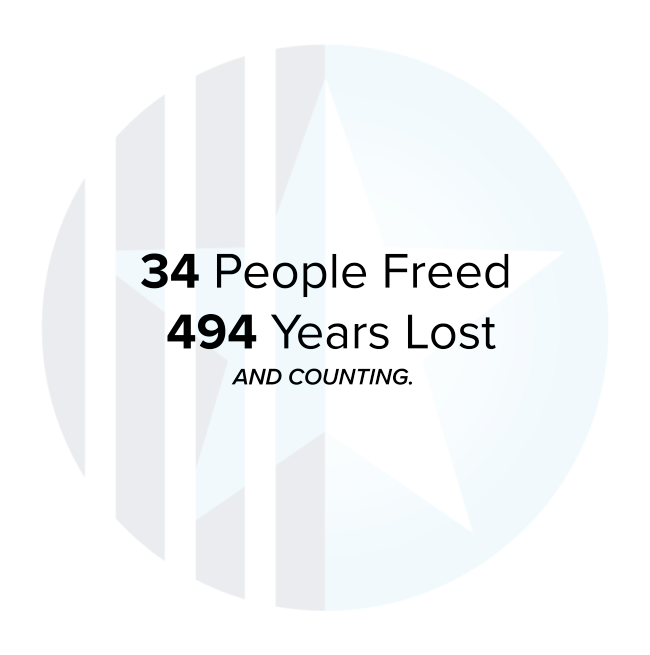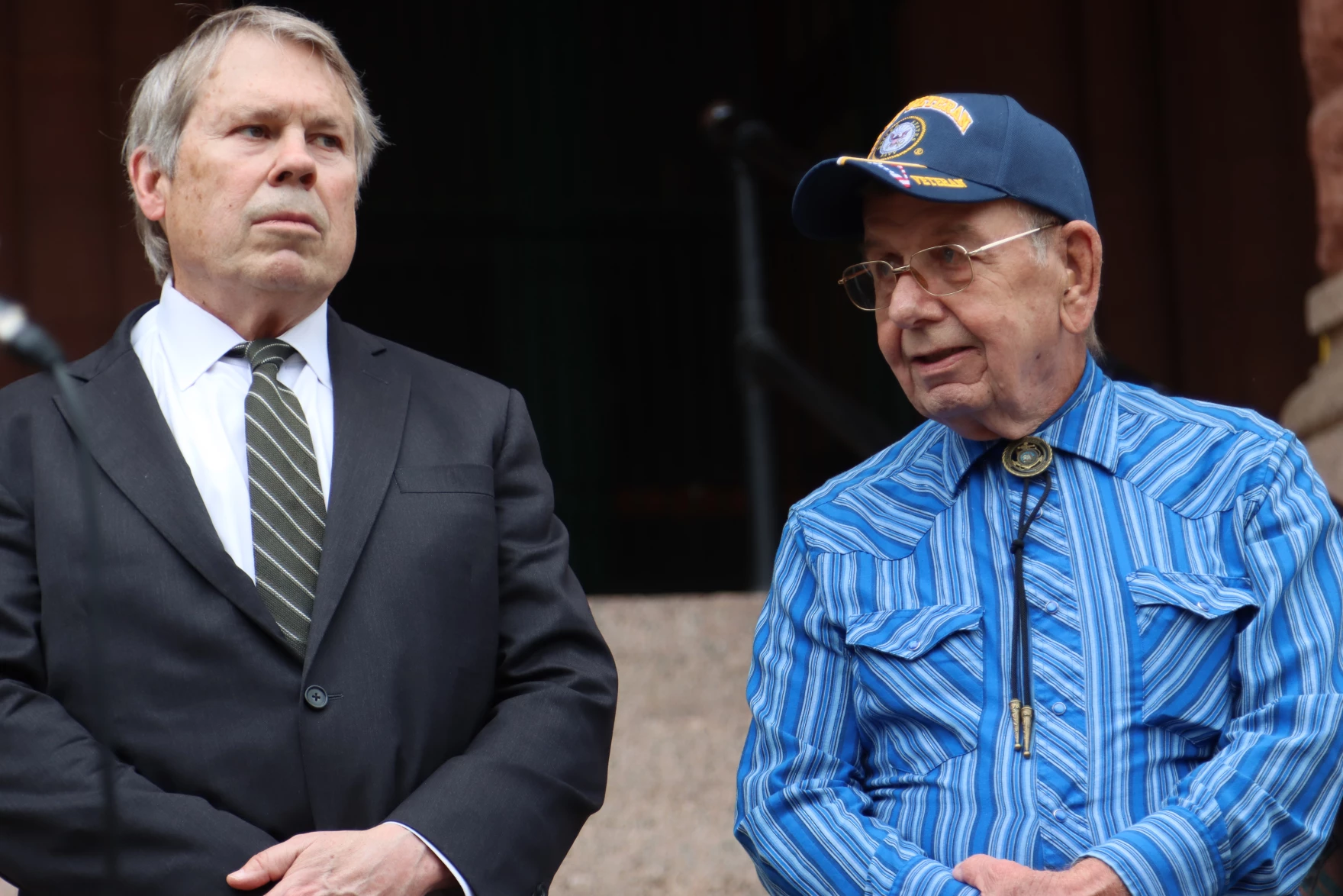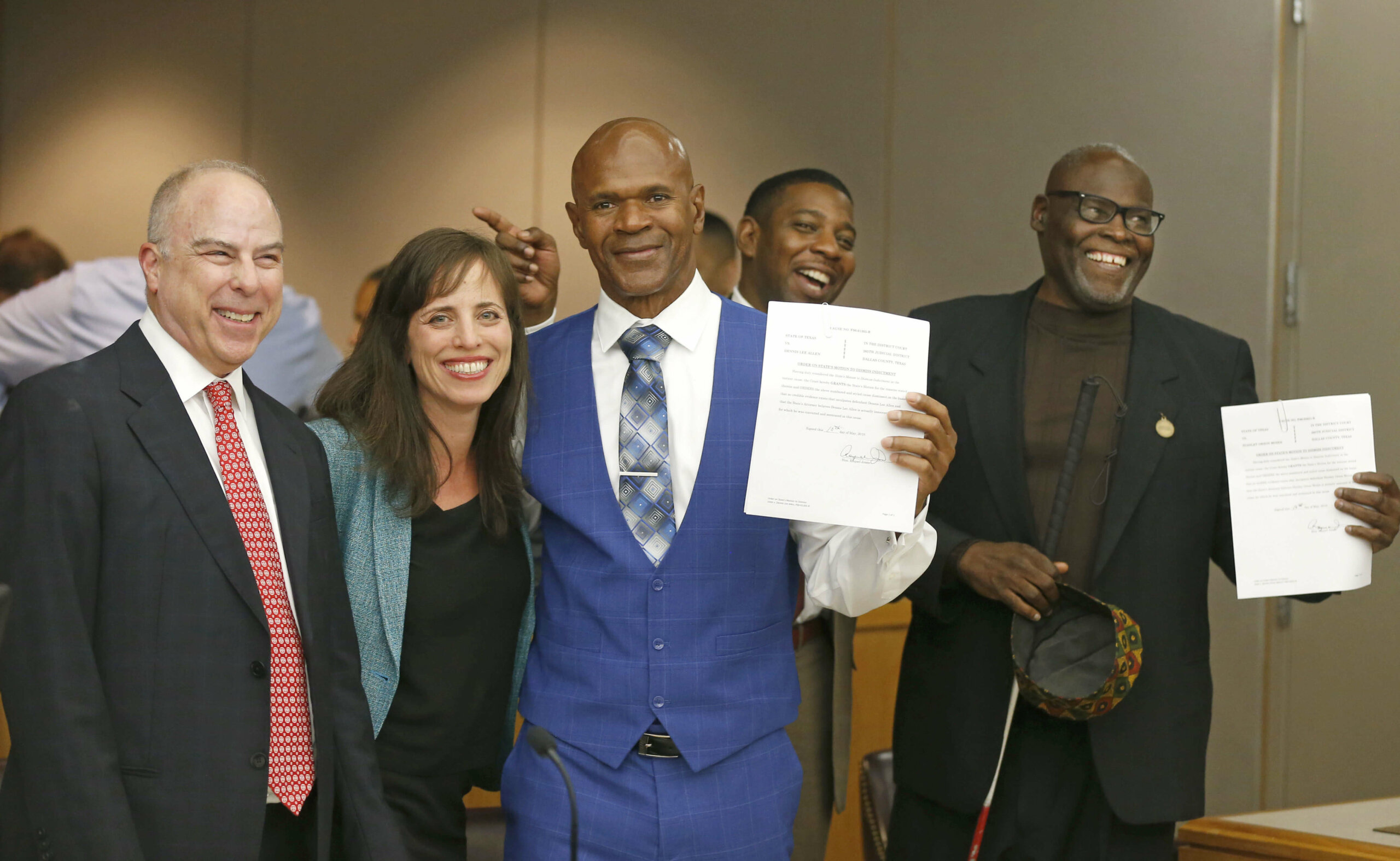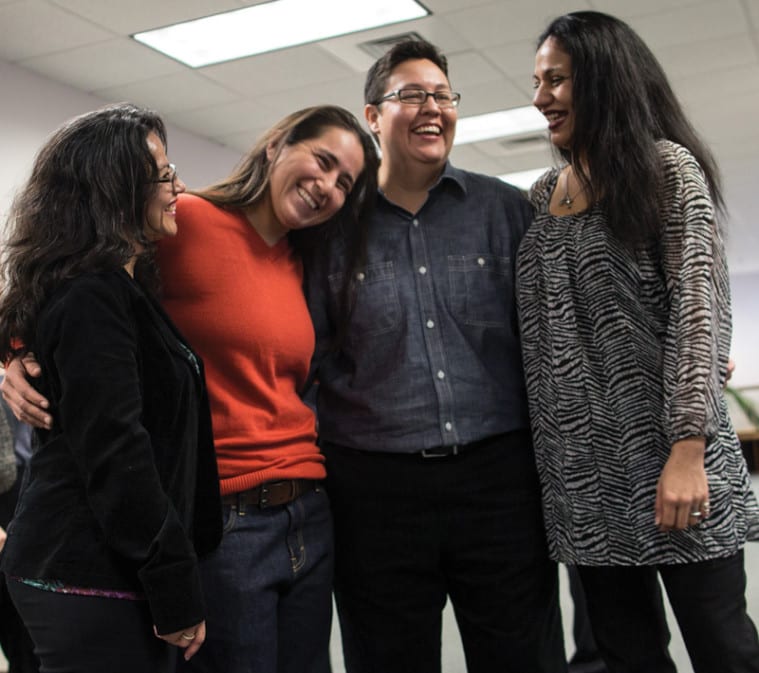
With the rate of wrongful convictions being estimated between 2% and 6%, there are 3,000-9,000 innocent people in Texas prisons today. Innocence Project of Texas works to achieve the release and exoneration of wrongfully convicted Texans by providing first-rate legal counsel and investigative services at no cost.
Our legal team of staff attorneys, law clinic students, and volunteer attorneys provide representation and critical assistance in the exoneration process. However, the path to exoneration is both long and expensive. Though Innocence Project of Texas has contributed to the release of 34 wrongfully convicted Texans, successful results are difficult to arrive at and challenging to replicate.
-
12
Average Years to
Exoneration -
$235,000
To Free A Wrongfully
Convicted Person
The Issues
Courts wrongfully convict men and women for a number of reasons: mistaken witness identification; false accusations, including jailhouse informants who can have an incentive to give inaccurate testimony; misconduct on the part of the police or prosecutors; inaccurate or “junk” forensic science; false confessions; and inadequate defense.
Overworked and underfunded defense attorneys may also lack the resources to vigorously test the prosecution’s evidence at trial.
Wrongful Conviction Causes, By The Numbers
All Courtesy of National Registry of Exonerations
-
72%
Eyewitness error is the single greatest cause of wrongful convictions, playing a role in 72% of convictions overturned through DNA testing.
-
61%
Perjury or false accusations, including lying jailhouse informants who can get substantial reductions in their own sentences or financial compensation in return for testimony, have been a contributing factor in 61% of exonerations.
-
57%
Since 1989, official misconduct has been identified as contributing to the convictions of 57% of defendants who were later exonerated.
-
23%
Many forensic testing methods, presented as fact at trial, such as firearm tool mark analysis and shoe print comparisons, have been applied with little or no scientific validation. This type of “junk science” as well as forensic testing that has been improperly conducted or inaccurately conveyed in trial has contributed to 23% of wrongful convictions.
-
12%
Those accused of crimes can feel pressured into giving a confession, even if they are innocent. False confessions have contributed in 12% of cases where the person was exonerated.



